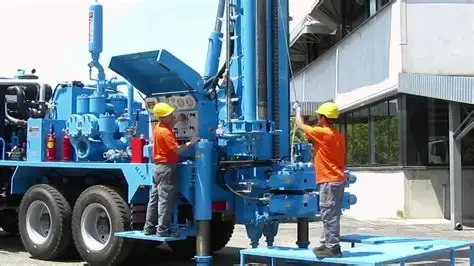How to Maintain Your Drilling Rig for Long-Term Performance
- Nate Jones
- Sep 29, 2025
- 2 min read
For water well drilling contractors, the drilling rig is more than just a piece of equipment—it’s the backbone of the business. Keeping rigs in top condition ensures efficiency, safety, and profitability. Poorly maintained rigs can lead to costly breakdowns, project delays, and safety hazards.

That’s why equipment and fleet management should be a top priority for contractors. At Excavating Insurance Partners, we provide business insurance for water well drilling contractors, including equipment insurance and commercial auto coverage, to protect your most valuable assets while you focus on keeping them running at peak performance.
1. Perform Regular Inspections
Routine inspections are the foundation of drilling rig maintenance. Contractors should check critical components such as hydraulic systems, drill bits, hoisting equipment, and power units before and after every job. According to the Occupational Safety and Health Administration (OSHA), preventive inspections can significantly reduce the risk of accidents and mechanical failures.
2. Follow a Preventive Maintenance Schedule
Every drilling rig manufacturer provides guidelines for routine maintenance. Following these schedules ensures equipment longevity and compliance with safety standards. Common preventive maintenance tasks include:
Lubricating moving parts
Replacing worn drill bits
Monitoring engine oil and coolant levels
Checking hydraulic fluids and filters
Preventive maintenance is far more cost-effective than emergency repairs.
3. Train Crews on Proper Equipment Use
Even the best-maintained rigs won’t last long if they are used improperly. Training drilling crews on safe operation techniques reduces wear and tear while lowering the risk of job site injuries. Contractors should provide refresher courses to keep crews updated on rig safety and efficiency.
4. Prioritize Fleet and Vehicle Care
In addition to rigs, well drilling companies rely on commercial vehicles to transport crews, pumps, and drilling equipment. Regular fleet maintenance—such as tire checks, brake servicing, and oil changes—ensures trucks and trailers stay reliable on the road. This minimizes downtime and improves job site productivity.
5. Use Equipment and Fleet Insurance for Added Protection
Even with the best maintenance practices, unexpected events like theft, accidents, or natural disasters can damage rigs and vehicles. That’s why business insurance for drilling rigs and fleets is essential.
At Excavating Insurance Partners, we specialize in insurance solutions tailored for well drilling contractors, including:
Equipment Insurance – Protects expensive rigs, pumps, and tools.
Commercial Auto Insurance – Covers trucks, trailers, and transport vehicles.
General Liability Insurance – Shields your business from third-party claims.
Workers Compensation Insurance – Ensures coverage for crew injuries on the job.
Having the right insurance allows contractors to focus on growth while minimizing financial risks.
Conclusion
Long-term drilling rig performance depends on consistent inspections, preventive maintenance, skilled operators, and proper fleet care. A well-managed rig reduces downtime, improves safety, and boosts profitability for water well drilling companies.
And while maintenance keeps your rigs running, Excavating Insurance Partners is here to protect your business with specialized coverage for equipment, vehicles, and crews—so your operations stay on track no matter what challenges arise. Contact now!





Comments